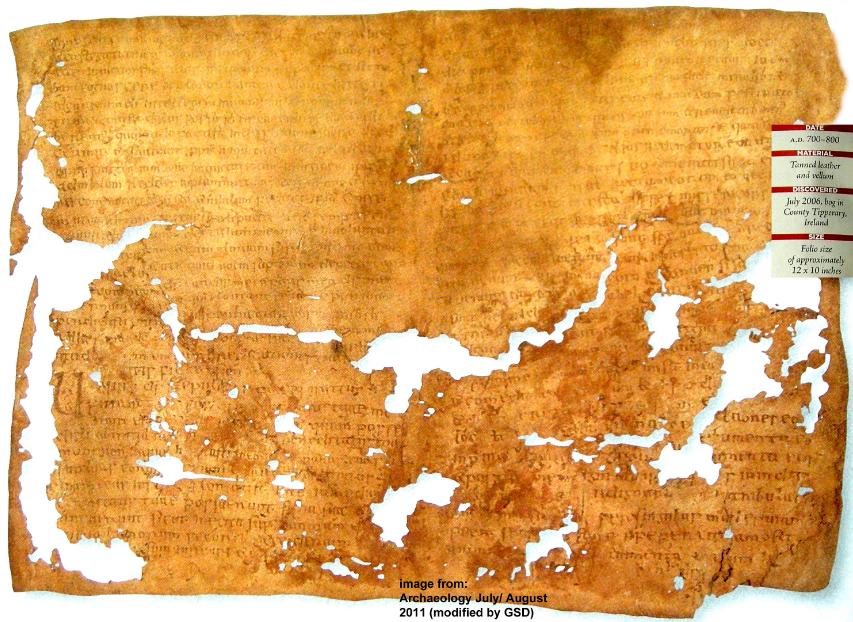Bog Book in Benbecula? May 27, 2017
Author: Beach Combing | in : Medieval, Modern , trackbackIt is always such fun when folklore produces an impossible story that is actually credible. Here is one recorded from the Hebrides in J. F. Campbell’s Popular Tales of the West Highlands. Note that the Feen are the Fenians, Gaelic Robin Hoods.
I was told in Benbecula how a man had found a book, containing the history of the Feen, in a moss; and how he had parted with it to a blind beggar, who had sold part to a clergyman, the rest was in America. The book was not dug up; it was on the moss. It seemed as if the ancestors had sent it.
A moss would be a bog in Hebridean terms, bogs often preserve objects from the past exceptionally well. In 2006 an early medieval Psalm book was discovered in a bog by a construction worker in Co Tipperary, Ireland: the Faddan More Psalter (pictured). The bog had preserved the volume and after much work researchers were able to read entire pages
Whichever young monk had left it must have got hell for losing something so valuable. The book was open at a page. He had probably fallen asleep listening to the bees hum and wandered off forgetting about the psalter: Beach can almost hear his ‘hell’ from twelve hundred years ago, when he realized his mistake.
Is it possible that a peat digger, in the nineteenth century had come across something similar on Benbecula? Yes, the storyteller claims that the book had just been left on the surface, but this could easily be a bit of story-telling elaboration, by an amazed peat digger. As to the book being about the Feen, anything medieval would have been illegible (if not in terms of language, in terms of script): so this would have been an ‘educated guess’. Benbecula has a toponym that suggests that it once had a monastery. Alternatively, it could have been an early modern book…
Not sure what to make of the clergyman and America. Was a valuable object broken up: the Faddan More psalter had no conventional binding? Or is the implication that the book had magical qualities: clergymen are sometimes portrayed as magicians. Or is this blogger just reading too much into a nice folk story from the last generations of traditional Hebrides life.



